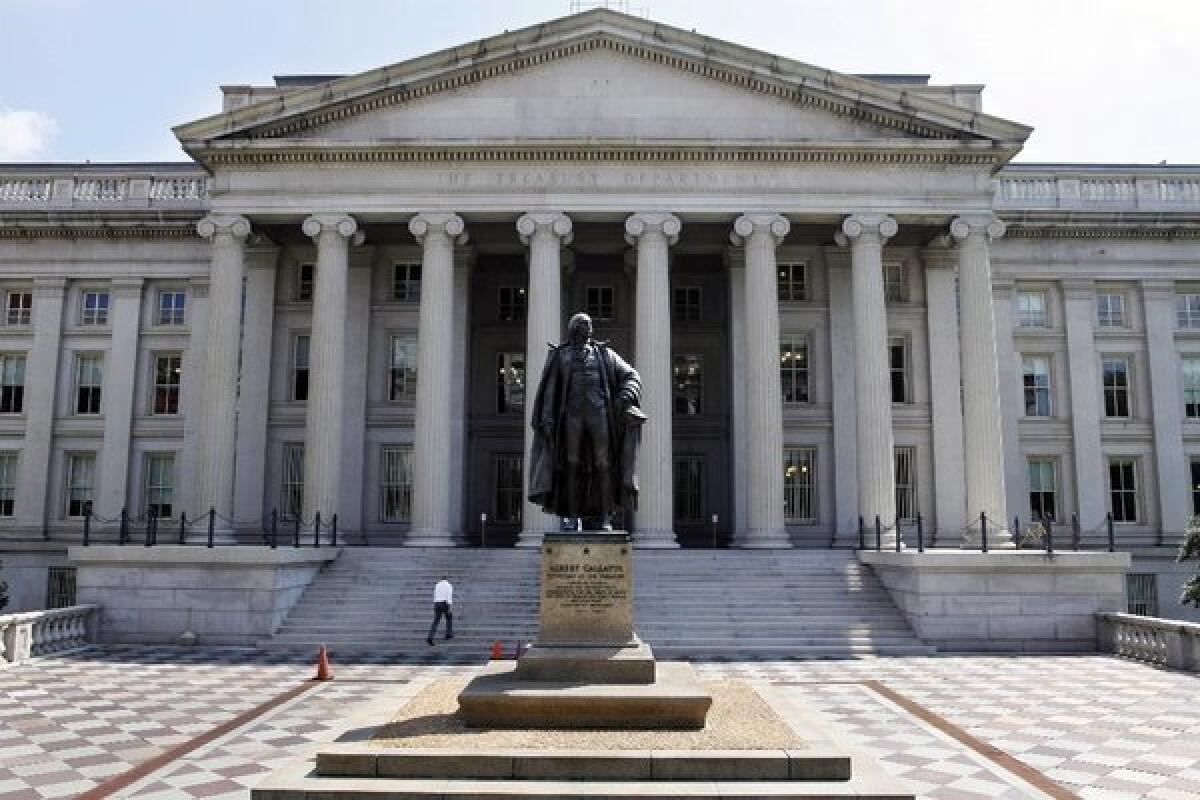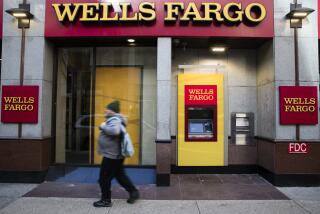Treasury to sell stakes in most banks left in TARP program in 2013

WASHINGTON -- The Treasury Department said Tuesday that it planned to sell the government’s stake in about two-thirds of the 218 mostly small banks that still have not repaid bailout money received during the financial crisis.
The sales, beginning as early as next month, will take place through 2013 as the government tries to finish winding down the $700-billion Troubled Asset Relief Program, also known as TARP.
Last week, Treasury sold its remaining shares of insurance giant American International Group, formally ending that controversial bailout. The Treasury made a $5-billion profit on its portion of the complex, $125-billion bailout of AIG. The Federal Reserve earned a $17.7-billion profit on its part of the rescue.
The 218 banks remaining in TARP owe a combined total of about $8 billion.
“Of course, TARP was always meant to be a temporary, emergency program,” Timothy Massad, assistant Treasury Secretary for Financial Stability, said in a blog post.
“The government shouldn’t be in the business of owning stakes in private companies for an indefinite period of time,” he said. “That’s why, after we extinguished the immediate financial fire, we began moving to exit our investments and replace temporary government support with private capital.”
About $245 billion of the TARP money was pumped into 707 banks to help stabilize the financial system in 2008 and 2009.
Most of the money went to large banks and has been repaid, and that part of TARP -- called the Capital Purchase Program -- already has made a profit.
So far, the Treasury Department has collected about $268 billion from repayments, along with dividend payments and other income that came from the injections of money. Banks were required to pay a 5% dividend on the TARP money for the first five years, with the figure jumping to 9% after that.
But many smaller banks have had trouble repaying their TARP money, and some have missed their dividend payments. In order to close down the program, Treasury officials have said they would sell some stakes at a loss if necessary.
Massad said that because Treasury cannot force banks to repay and some are not expected to be able to repay in the near future, “there is no way to wind down the program without Treasury selling its investments in certain banks.”
Treasury said it expected to sell its preferred stock and other interests in 53 of the remaining 218 banks starting as soon as late January. Those banks include Plumas Bancorp in Quincy, Calif., and Santa Clara Valley Bank in Santa Paula.
ALSO:
Bailout terms strain small banks
Fed says taxpayers earned $17.7 billion from AIG bailout
Sale of last AIG shares brings U.S. bailout profit to $22.7 billion
Follow Jim Puzzanghera on Twitter and Google+.
More to Read
Inside the business of entertainment
The Wide Shot brings you news, analysis and insights on everything from streaming wars to production — and what it all means for the future.
You may occasionally receive promotional content from the Los Angeles Times.











